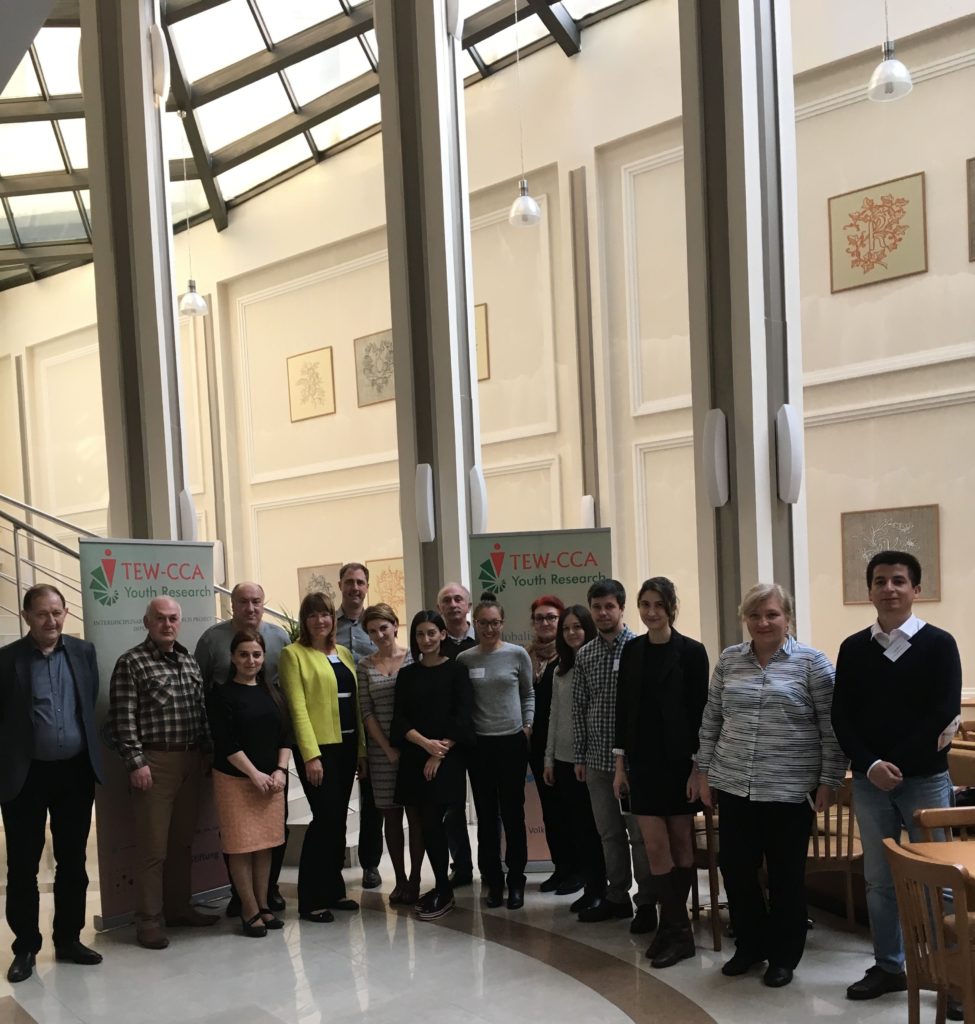Duration: 1 July 2015 – 31 October 2019
Funding: VolkswagenStiftung; funding initiative „Between Europe and Orient“, call „Institutional change and social practice. Research on the political system, the economy, and society in Central Asia and the Caucasus“
Short description: This interdisciplinary project carries out a multi-country study on youths’ labour market integration in Azerbaijan, Georgia and Tajikistan in times of increasing uncertainty. Based on a micro-macro theoretical model we study the opportunities and constraints young individuals face during their transition from education to work in different cultural, economic and institutional contextual settings. Original data are produced in a mixed-method approach with a focus on conducting three large-scaled quantitative youth surveys (N=2,000 persons per country) and supplementary qualitative in-depth interviews in a comparative design in Azerbaijan, Georgia, and Tajikistan. The explicit focus on studying the dynamic processes of youth transitions in a life course perspective represents the key innovation of the project. A multidimensional perspective on both objective and subjective dimensions of the situation of young people is applied in order to reach a holistic assessment and to understand how objective conditions are translated into subjective youth identities and vice versa. Analyzed at the institutional level is how education and training institutions, labour market institutions as well as related segments, welfare institutions, and family/gender regimes ease or hamper youth chances of successful integration into gainful employment. By performing comparative analyses, examples of best practices and recommendations for institutional reforms and policies will be developed which help not only improve the transition from school-to-work in particular, but also the general socio-economic situation of youths in the South Caucasus and Central Asian region.

Involved researchers in Germany:
- Prof. Dr. Michael Gebel (Project Coordinator)
- Eliza Mandieva (Ph.D. Fellow)
Involved researchers in Azerbaijan:
- Dr. Tair Faradov (Project Co-Coordinator, ICSR)
- Prof. Dr. Rajab Sattarov (Project Co-Coordinator, Baku State University)
- Vladimir Rodin (Ph.D. Fellow)
- Aysham Balayeva (Ph.D. Fellow)
- Ainur Rashidova (Research Associate, ICSR)
- Ainura Hajizade (Research Associate, ICSR)
Involved researchers in Georgia:
- Dr. Irina Badurashvili (Project Co-Coordinator, GCPR)
- Prof. Dr. Giorgi Meladze (Project Co-Coordinator, I.Javakhishvili Tbilisi State University)
- Rusudan Nadiradze (Ph.D. Fellow)
- Nino Kobakhidze (Ph.D. Fellow)
- Prof. Dr. Mamuka Nadareishvili (Research Associate, Ilia State University)
- Nana Gurgenidze (Research Associate, GCPR)
- Prof. Dr. Flora Esebua (TEW-CCA Research Associate)
Involved researchers in Tajikistan:
- Dr. Saodat Olimova (Project Co-Coordinator, SHARQ-ORIENS)
- Prof. Dr. Subhon Ashurov (Project Co-Coordinator, Technological University of Tajikistan)
- Loiqdzhon Mirov (Ph.D. Fellow)
- Prof. Dr. Muzaffar Olimov (Research Associate, Tajik National University)
- Jamshed Kuddusov (Research Associate, SHARQ-ORIENS)
